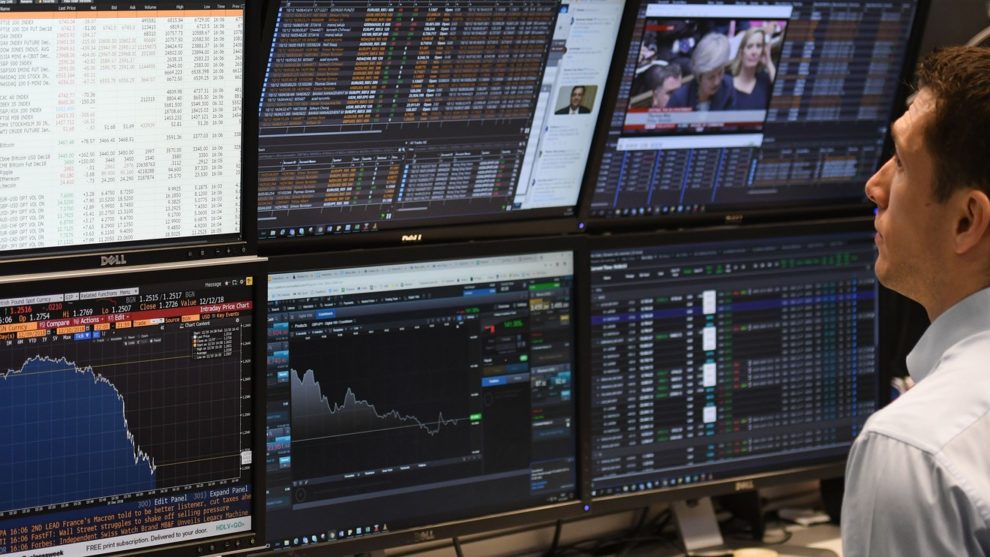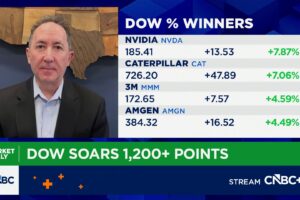
Investors caught flat-footed by huge swings in markets in the first weeks of March piled into short positions in U.K. stocks — a 40% surge since the same time last year.
That is according to data by exchange-traded funds provider GraniteShares, which calculated 507 short positions reported to Britain’s regulators between Mar. 1 to 15 in 2019. That figure surged to 712 over roughly the same period this year, or 40% higher.
Will Rhind, founder and Chief Executive at GraniteShares, said the data would appear to show that initially investors were taken by surprise, and therefore not able to hedge portfolios in a way that might be expected.
In January and February 2019 there were 906 and 865 short positions respectively reported to the Financial Conduct Authority. The corresponding figures for the first two months of this year were 719 and 833 respectively, which is a decline of 219 or 12%.
That is a signal traders were caught by surprise, as they scrambled to snap up short bets in early March as the novel coronavirus spread.
“The coronavirus has led to huge volatility in the world’s stock markets with billions of dollars being quickly wiped off valuations,” Rhind said. “On a daily basis, there is an update of the human tragedy of this virus, and understandably this has spooked investors, including the more sophisticated ones who look to hedge risk by shorting stocks.”
Short sellers place bets on shares that they expect to fall in price. They pay a fee to borrow shares in a company and then sell them in the hope of buying them back at a lower price and pocketing the profit.
Last week, the EU’s market watchdog announced temporary measures to lower the threshold at which investors must report to national regulators on short selling positions to track short sellers amid the market volatility caused by the coronavirus pandemic.
Unlike in the U.S., many European regulators require public disclosure of any short position that makes up 0.5% of a company’s shares.
The new rules from the European Securities and Markets Authority (ESMA), which also apply to the U.K., mean that any short position that accounts for 0.1% or more of a company’s outstanding shares must be announced to the market regulator. That compares with the previous threshold of 0.2%.
ESMA said the move was made under “exceptional circumstances” linked to the continuing coronavirus pandemic. The move follows new all-out bans on short selling in France, Italy, Spain and Belgium.
In November last year, GraniteShares launched a range of short and leveraged single stock daily Exchange Traded Products (ETP) on the London Stock Exchange, allowing investors to take positions on both rising and falling share prices. In addition to this, they can also be used to hedge individual stock exposures, including those in index or fund holdings.
The best-performing GraniteShares inverse ETP was financial services company Barclays BARC, -2.13%, which delivered a return of 52.3% between close of business on Feb. 21 and 28, 2020, against the share price falling by 17.2%.
The second-best performing GraniteShares inverse ETP was mining company Rio Tinto RIO, +0.68%, which delivered a return of 51.6%, followed by commodity trader Glencore GLEN, +1.93%, with a return of 50.9%. The ETP with the lowest return was engineering company Rolls-Royce RR, +4.20%, which despite the strong bounce on the back of its results announcement on Feb. 21, still delivered 10.5% over the week.
div > iframe { width: 100% !important; min-width: 300px; max-width: 800px; } ]]>









